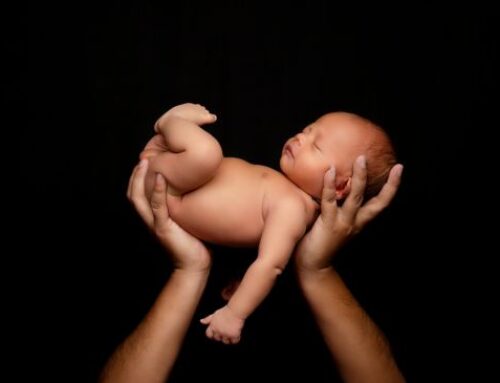Eli Schuster The Interim Should a man who murders his wife and unborn child face two charges, rather than one charge, of murder? Pro-abortion advocates, who believe any such recognition of unborn life could lead to restrictions upon abortion say “no,” and a recent case in Edmonton is starting to unnerve the pro-abortion side.
Edmonton detective Mike Campeau expressed a widely held frustration with current law when he told the media: “Unfortunately in Canada, you can’t charge a person with the death of an unborn baby.” White cannot be charged with the killing of his own flesh and blood, because unborn children have not been recognized as rights-bearing human beings since the 1988 Morgentaler Supreme Court decision, which decriminalized abortion. Subsequent rulings have reinforced that status. Reporters immediately began comparing the case to the similar 2002 murders of Californian Laci Peterson and her unborn son, Connor. Peterson’s husband, Scott, was sentenced to death in March for the first-degree murder of Laci and manslaughter for killing the child she carried for eight months. While California, like Canada, is known for its relatively lax abortion laws, it is also among 32 U.S. states that have passed laws recognizing the “unlawful” killing of unborn children as homicide. Twenty of those states grant protection to unborn children of any age, while other states, including Arkansas, have imposed age limits. The U.S. government passed the Unborn Victims of Violence Act in April 2004 as a means of protecting fetuses who are attacked in federal crimes. Such a glaring omission in Canadian law has prompted Conservative MP and co-chair of the Parliamentary Pro-Life Caucus Maurice Vellacott to push for a similar statute for Canada. “We cannot continue to exclude vulnerable children from the law’s protection,” said Vellacott. “In the fall, I plan to work with colleagues in the House to introduce a private member’s bill to protect unborn victims of violence.” He added that the bill will likely come from a pro-Life Liberal backbencher, and that it will receive “broad cross-party support.” Vellacott attacked the existing law as archaic, and argued that “at the point where women and their pre-born children are most vulnerable of all, we need to do something.” His proposed legislation would specifically exclude abortion or any actions by the mother herself from criminal prosecution, and would instead make it illegal to injure or kill the unborn babies of pregnant women. Even so, pro-abortionists are steadfastly opposed to any legal recognition of the rights of the unborn. Evelyn Reisner, executive director of Saskatoon’s Planned Parenthood Centre, told reporters that while she understood the “emotional impetus” for such a law, her “only concern is that it would be the beginning of a slippery slope and that it (has) the potential to lead us down a path that would reduce a woman’s right to choose.” Joyce Arthur, the spokeswoman for the Vancouver-based Pro-Choice Action Network, echoed those sentiments by telling the media: “You can’t have two competing sets of rights in one body. A woman and her fetus are one.” In spite of existing precedent, a Canadian version of the Unborn Victims of Violence Act would likely enjoy widespread popularity. A Fox News poll of Americans during the Peterson trial showed that 84 per cent of respondents supported a double murder charge against Scott Peterson. Edmonton lawyer Mark McCourt, who has advocated in favour of fetal rights, told reporters recently that even in liberal Canada, people instinctively view the murder of a pregnant woman as something more horrible than other killings. “Society recognizes the greater wrong, but the law doesn’t,” said McCourt. Pro-life activists have also asked why Michael White cannot be charged with killing his unborn baby when the federal and provincial governments already recognize a multitude of initiatives designed to protect unborn children from harm. “We have graphic pictures on cigarette packages warning ‘this could kill your baby,’ said Joanne Byfield, the president of LifeCanada. While it is impossible to charge Michael White in the second killing, Vellacott is hopeful that the crime might prompt Canadians to reform their criminal justice system to recognize unborn victims. “If there is any good that can come out of all of this, maybe it is that it has helped to shed some light on the social and criminal injustices that exist in Canada today,” said Vellacott. |
|
|

 That case involves the July murder of 29-year-old – and four months pregnant — Liana White, allegedly by her husband Michael White, who was charged with only one count of murder on July 18. Liana’s three-year-old daughter survives.
That case involves the July murder of 29-year-old – and four months pregnant — Liana White, allegedly by her husband Michael White, who was charged with only one count of murder on July 18. Liana’s three-year-old daughter survives.


